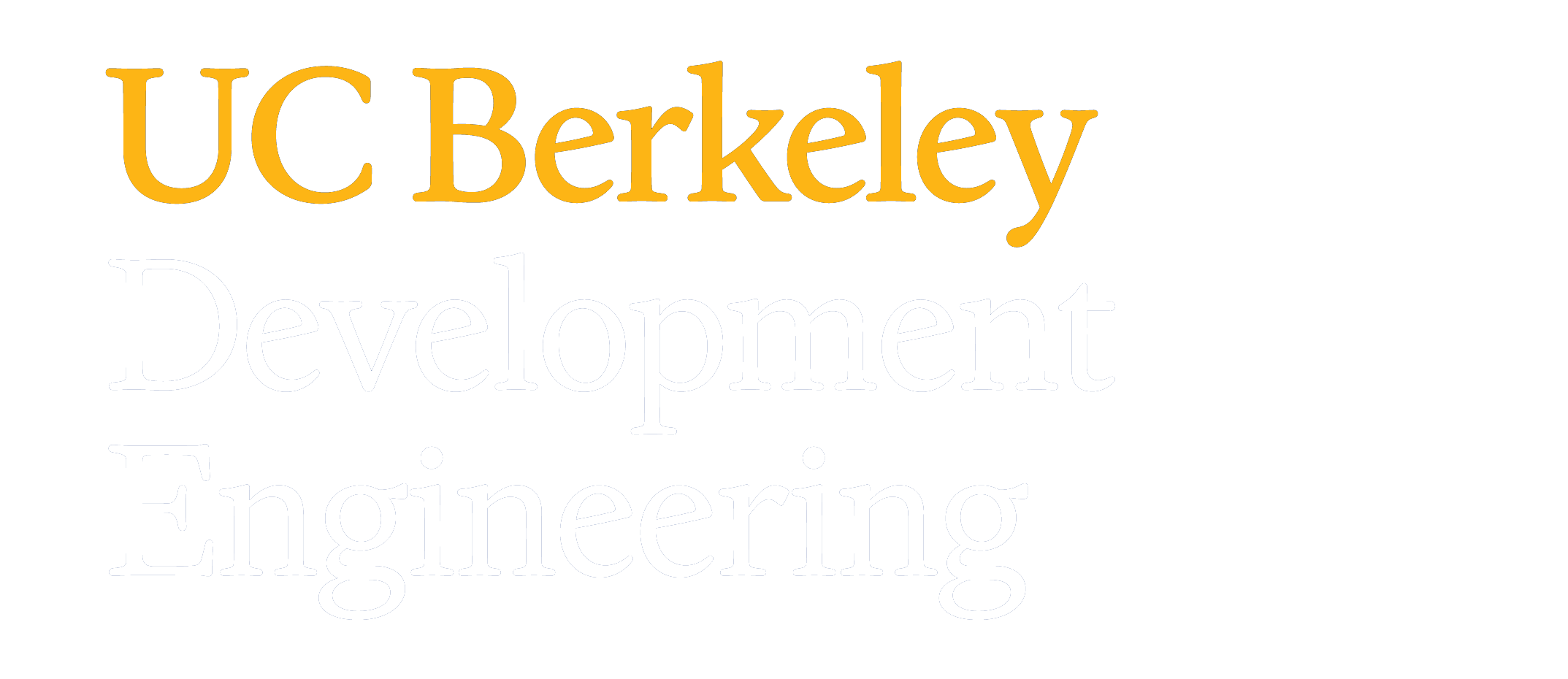Why Development Engineering?
The UC Berkeley Master of Development Engineering (MDevEng) is designed to meet two urgent global needs:
- The growing demand for engineers and technologists who can address complex social challenges.
- The increasing role of technology in the global development and humanitarian sectors.
This program prepares diverse STEM professionals to invent, adapt, and implement technologies that make a difference in low-resource communities around the world.
Building “T-Shaped” Professionals
MDevEng graduates are “T-shaped” professionals—broadly skilled across disciplines, with deep expertise in one area. Core competencies include:
- Design and management of technology: Design thinking, human-centered design, humanitarian engineering.
- Emerging technologies for development: Digital transformations of development, AI for social impact, Information and Communication Technologies for Development (ICT4D)
- Evidence-based assessment methods: Data analysis, Ethics, and reflection
- Economic development strategies: Social Entrepreneurship
- Community engagement and cross-cultural collaboration: Ethics and reflection, critical thinking, communication
Specialization Areas
Students further their training by choosing one of six concentration areas:
Breadth
Ethics & Reflection
Data Analysis
Social Entrepreneurship
Communication
Design Thinking
Systems Thinking
Critical Thinking
Concentrations
Students take courses on how artificial intelligence, machine learning, and data tools and analytics give the social, civic, and international development sectors actionable insights.
Students take courses on core natural resource challenges—water and energy systems and their impact on the environment—and on life cycle assessment, water resource management, agricultural impact, and energy technologies and policies.
Students take courses on sustainable design and social entrepreneurship, including principles of green design, the science of sustainability, resilient communities, sustainable economic models, green chemistry, product design, spatial modeling, affordable housing, public transportation, and equitable development.
Students take courses on the rapidly evolving landscape of global healthcare technologies and practices, including biomedical device design, health policy, health impact assessment, and the digital transformation of healthcare.
Students take courses on Indigenous studies, environmental studies, regenerative ecology, health and food systems, community-based research, and equity-centered design thinking to ethically address complex issues around climate change, natural resource governance, and community self-determination.
If a student’s interests fall outside the predefined concentrations, they have the option to create a Self-Designed Concentration—for example, in areas such as gender equity, global education, or technology, development, and policy.
Program Structure
The Master of Development Engineering is offered only as a full-time, in person program. Over the course of this three-semester program, students will engage in:
- Core Development Engineering courses (18 units total)
- Electives (18 units total, including at least 12 units in the chosen concentration)
- Summer internship with a focus on applied learning in a specific context of interest
- Capstone project, where students work in teams to build on coursework, internships, or social innovation initiatives
- Professional reflection and portfolio development to showcase growth and impact
For more information about the program structure in curricula, check:

